Cancer: Woman's condition incurable after IBS misdiagnosis
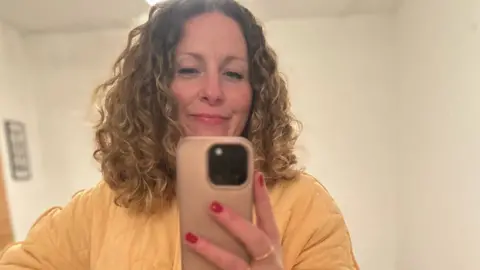 Claire O'Shea
Claire O'SheaA woman whose cancer is incurable after months of being misdiagnosed says "something dramatic" needs to change.
Claire O'Shea, 41, was diagnosed with irritable bowel syndrome (IBS) but a masseuse on a Turkish holiday told her the lump in her abdomen could have a more sinister cause.
She was later diagnosed with a rare type of gynaecological cancer.
The Welsh government said targeted support for gynaecological cancer services has been introduced.
But a Senedd committee report found women's cancer concerns are "dismissed, downplayed and unheard" and described a "dangerous bias" against women that needs to be stamped out.
The health and social care committee heard evidence from a number of women who felt their concerns had repeatedly been dismissed, including Judith Rowlands from Anglesey, who died soon after her evidence was heard.
"There has to be something dramatic to change women's experiences," said Claire, from Cardiff.
She was referred for a scan within days of her return from holiday but was told she had benign fibroids - non-cancerous growths around the womb.
The lump was the size of a grapefruit when she had that removed eight months later, but a biopsy confirmed it was uterine leiomyosarcoma - a cancer of the soft tissue in her uterus.
"The prognosis is generally only 12 to 18 months because it's so rare, there's not a lot of research into it and women generally get diagnosed later," said Claire.
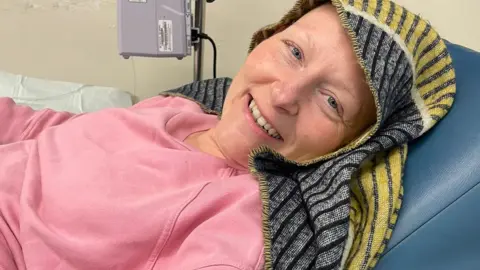 Claire O'Shea
Claire O'SheaShe requested her medical notes which noted multiple cysts on her liver had been spotted. At her request, further scans were done, revealing the cancer had spread to her liver, lungs and hip bone.
After a hysterectomy a year ago, she underwent six cycles of chemotherapy. So far her tumour has stabilised and a scan before Christmas will help decide the next course of action.
"I'm 12 months clear and feeling quite healthy at the moment, so I've outlived my prognosis already, which is promising in a way," Claire said.
"You can't live in anger if you don't know how much longer you have to live, so I'm trying to channel it into raising awareness.
"In Wales we have a woman who's a health minister, we have a government who said they want to be the first feminist government and we talk about wanting an equal Wales, but they're not translating into better care for women.
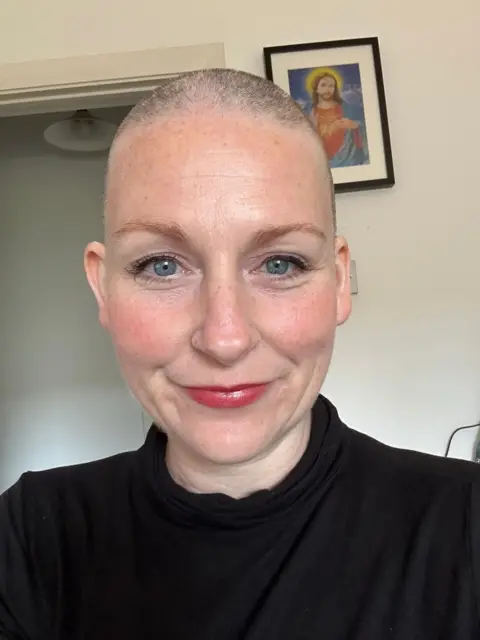 Claire O'Shea
Claire O'Shea"At the moment it feels like there's a lot of rhetoric and not much that actually changes. There has to be something dramatic to change women's experiences."
Sioned Cash, daughter of Judith Rowlands who was 57 when she died in May, said it was important to her mother for improvements to be made for other women.
"Seeing mam suffering with the cancer, I would like to see improvements in the speed and accuracy of the diagnosis and access to treatment for the sake of others," she said.
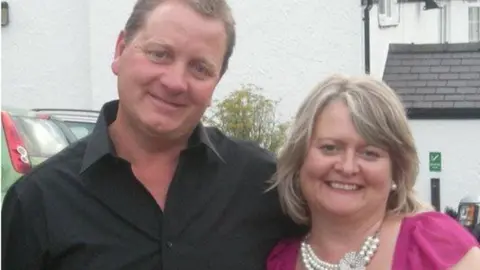 Sioned Cash
Sioned Cash"I am very proud of mam for sharing her story with the Welsh Parliament even though she was so gravely ill at the time."
Judi Rhys, chief executive of Tenovus Cancer Care, said: "The stories shared with the committee only scratched the surface. It revealed a systemic failure of women.
"Sadly, Judith passed away before the publication of this report and it was one of her final wishes for her experience to be heard so other women didn't have to endure the same as her.
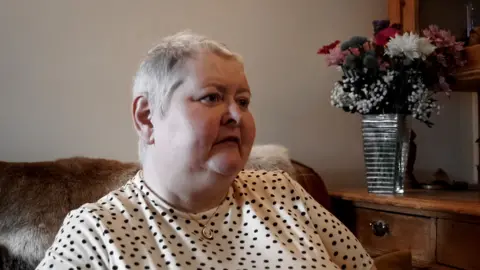 Judith Rowlands
Judith Rowlands"We now owe it to these women and their families to make sure they are actioned and prioritised by Welsh government."
A Welsh government spokesperson said: "It is vital women's concerns are heard and taken seriously when they go to the NHS for help. The experiences of the women in the report will help us to improve services.
"Cancer is one of the six planning priorities for the NHS and we are committed to improving cancer outcomes. We have introduced targeted support for gynaecological cancer services and are providing GPs with supportive tools for referral of suspected cancer.
"We welcome this report from the committee and will respond to the recommendations in due course."
